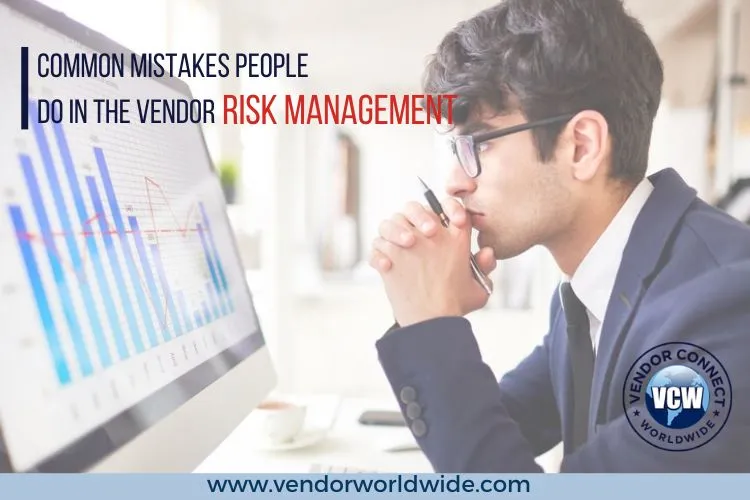
Vendor connections resemble the backstage personnel of a major theatrical production. Even though they are not the center of attention, they ensure that production runs well. Your expenses, the caliber of your goods and services, and even your capacity to adapt and remain competitive in the face of shifting or changing markets can all are impacted by the caliber of your vendor relationships. A solid vendor relationship can result in improved pricing, dependable delivery, and novel ideas. But before that, you must sign an annual contract with vendors in Saudi Arabia so that you can do things legally.
It is evident that managing a vendor is not easy, and people tend to make a lot of mistakes. This article will explain that in detail. So, let’s start the topic.
Common Mistakes People Do In the Vendor Risk Management
Failing to include all the vendors
A common error businesses make is using vendor risk management for a small group of suppliers surpassing particular contract value criteria or other metrics. However, each third party with each level of access to your systems or data is a risk that must be tracked down and recorded. If you know there has been a breach at one of your vendors, ask them to confirm the steps taken to prevent it from happening in the future and to provide documentation of their response. Naturally, there are differences in the risk levels among vendors. Organizing your vendors into several risk categories might help you evaluate each according to their risk profile.
Lack of due diligence
To ensure you partner with only reputable and trustworthy companies, you must complete due diligence on vendors before onboarding them. Background investigations, reference checks, and an assessment of prior performance should all be part of an extensive due diligence procedure. This strategy can assist you in making well-informed choices and reducing any risks related to vendor partnerships.
Failing to recognize the risk vendors
We frequently read about data breaches caused by third-party vendors in the news, affecting government agencies, healthcare systems, and even corporations. It doesn’t follow that your vendors have an equally secure system just because you have a security program for your own company. Avoid the error of trusting that vendors are secure or that it is their responsibility to handle such. The outcome may affect the worth of your company’s shares, future sales, and brand.
Underestimating cybersecurity risks
Ignoring cybersecurity threats linked with vendors today can be risky when cyberattacks are becoming more common. Vendors may be subject to cyberattacks if they have access to private information or systems. To guarantee their protection, it is crucial to implement robust cybersecurity measures and conduct frequent audits of vendors’ security procedures.
Inadequate contingency planning
Businesses must implement emergency plans to prepare for potential vendor disruptions such as service outages, data breaches, or bankruptcy. This action is important to avoid detrimental effects on company operations. Businesses can confidently lessen the impact of vendor-related disasters by creating thorough contingency plans, substituting vendors, or creating backup systems. But before that, you need to register with a local vendor to proceed.
These are some of the common mistakes people tend to make in management.





